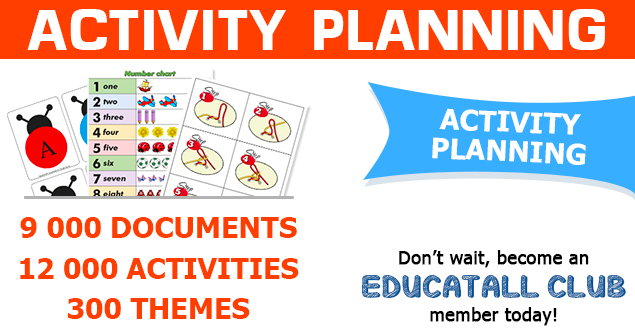
How to simplify requests
Too often, we are tempted to believe that children think like miniature adults. If, in our mind, a task or request is clear, we feel that children understand it perfectly too. I must say that this is far from being true. Children do not think like adults at all. What's more, we tend to forget that they lack experience and therefore cannot count on a well-stocked "toolbox".
For this reason, I feel it is very important that we, as adults, fill children's toolboxes by providing them with positive experiences. Keep in mind that children experiment daily. Through trial and error, they are constantly trying to understand the world they live in. In the same way, they will test limits to better understand them. They will, for example, throw an object on the floor to see what will happen and how you will react. They have so much to learn. Their curiosity will lead them to figure things out.
This foreword is important for understanding the rest of this article. Often, our "negative" interventions are the result of children not understanding our expectations or requests. When, for example, parents ask their teenager to "clean his room", what exactly does this task require? Where must the child begin? What are the steps involved? For the child's parents, the task at hand is obvious, but children of all ages may not have a clear idea of what they are supposed to do. As adults, how should we intervene when the task is not done per our standards? Unfortunately, anger, criticism, and impatience are often present during our interventions. At times, adults may end up completing a task for the child. You may think that my example is exaggerated, but having worked with many parents and childcare workers, I can say that this type of situation is very common.
How can we clarify our requests and break the tasks we ask children to complete down into a series of simple actions? "Professionally speaking", it could be useful to begin by identifying our goal as well as the means we will use to reach it. If, for example, you would like the children in your group to wash their hands independently when you ask them to and you simply ask them to execute themselves, you may face a tantrum, an outright refusal to cooperate, opposition, or hands that are simply not properly washed. The source of this behavior: children are unaware of the steps involved to successfully reach the goal and complete the task. They understand the goal (clean hands), but have no idea how to succeed.
Whenever you ask children to do something, whether it's to pick up daycare toys, get ready for naptime, wash their hands, or another request (and we know that with young children we make many requests every day), you must:
- Take the time to execute the task with them and explain each step to make sure they perfectly understand what they are supposed to do.
- Use illustrations to clearly explain what your request entails and display them so children can refer to them whenever necessary.
- Be patient, take the time to accompany children several times to help them successfully accomplish a task.
- Be indulgent, since it is highly possible that children will forget certain steps. If this is the case, you must go back and execute the task with them, explaining it once more to help them master it, but without necessarily completing it for them.
The next time a child refuses to collaborate or fails to complete a task per your standards, ask yourself if he has a clear understanding of your request, your expectations. If the answer is no or if you are unsure, follow the four steps listed above. Doing so will make your days easier while adding important tools in children's "toolboxes", one task at a time.
Maude Dubé, Specialized educator

 Home
Home Theme activities
Theme activities
 Babies and toddlers
Babies and toddlers
 Arts and crafts
Arts and crafts
 Science
Science
 Creative recipes
Creative recipes
 Tips and tricks
Tips and tricks
 Special needs
Special needs
 Extra activities
Extra activities
 Educ-TV
Educ-TV
 Newsletter
Newsletter  Online store
Online store Educatall club
Educatall club

